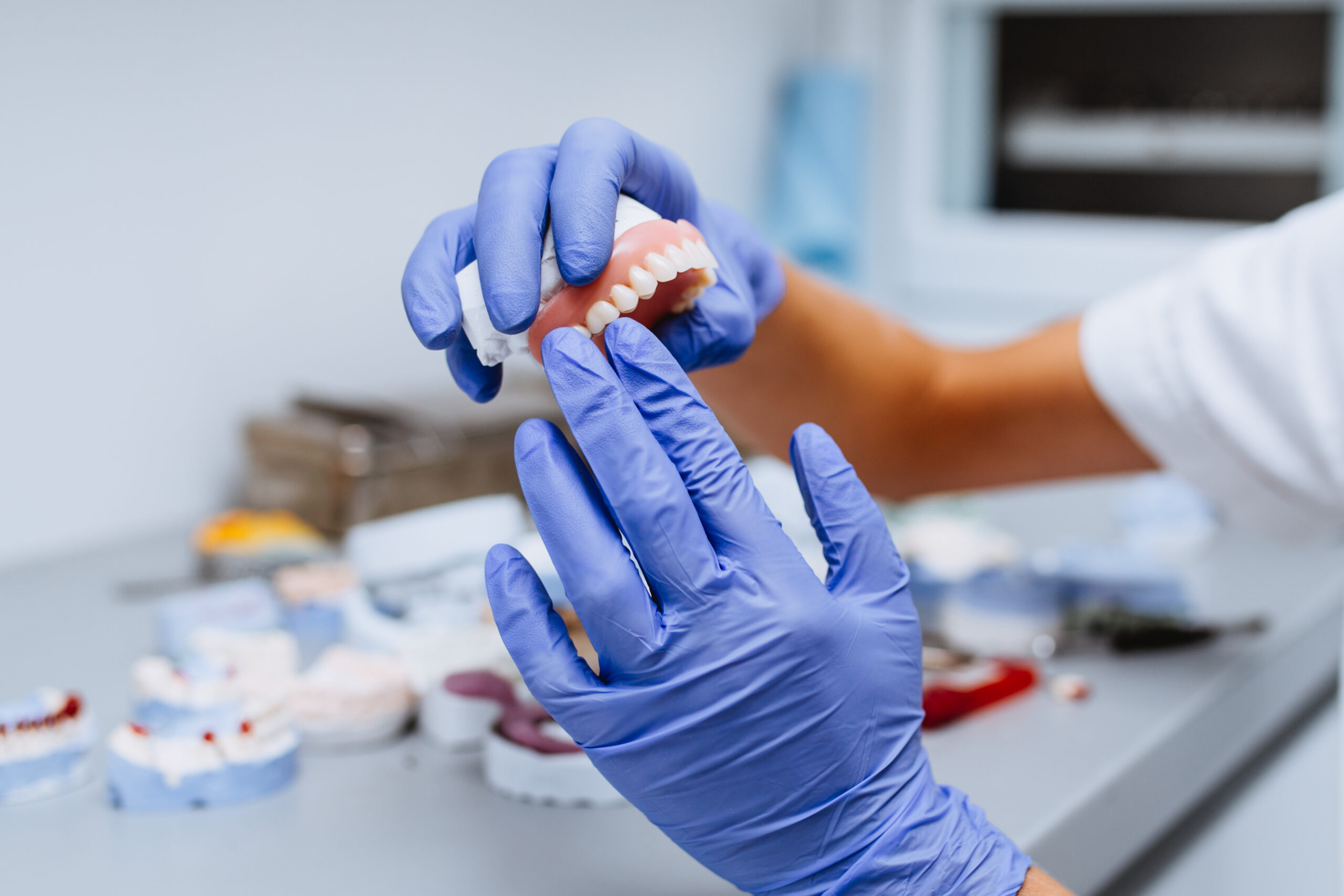People who are missing one or more teeth frequently turn to partial dentures as a replacement. These dental devices may be a great choice for restoring your smile and enhancing your comfort while eating and speaking.
Removable dental prosthetics called partial dentures are used to replace one or more lost teeth. They are made up of a connected fake tooth or teeth and a foundation made of gum-coloured plastic. Metal or plastic clasps that adhere to your natural teeth hold the denture in place.
You can use partial dentures to fill in any gaps in your upper or lower jaw. The artificial teeth feel and look natural since they are built specifically for your mouth and are made to match the color and shape of your real teeth.
Different Types of Partial Dentures
Partial dentures come in a variety of forms, including:
-
Removable Partial Dentures
These partial dentures are the most popular kind. They may be readily modified or fixed if necessary, and they are made to be removed for cleaning and maintenance.
-
Fixed Partial Dentures
These dentures, which are often referred to as dental bridges, are fixedly linked to the remaining teeth using dental implants or crowns. They offer a reliable and durable replacement for lost teeth.
-
Implant-Supported Partial Dentures
Dental implants, which are surgically inserted into the jawbone, support these dentures. When compared to detachable partial dentures, they offer a more secure and cozy fit.
Benefits of Partial Dentures
-
Improved Appearance
Filling up the spaces created by lost teeth with partial dentures can enhance your look. The dentures help restore your smile and facial structure since they are made to feel and appear like your real teeth. Furthermore, partial dentures help stop the remaining teeth from moving, which could cause other dental issues.
-
Enhanced Functionality
Your ability to comfortably chew, speak, and consume can be improved with partial dentures. They support your remaining teeth, enabling you to eat your favourite meals comfortably and without experiencing any discomfort. Furthermore, partial dentures help enhance speech that may have been hampered by tooth loss.
-
Cost-Effective Solution
A practical way to replace lost teeth is using partial dentures. They may be made to meet your budget and are less expensive than dental implants. The majority of dental insurance policies now cover partial dentures, making them an inexpensive choice for many people.
Maintenance of Partial Dentures
Your partial dentures must be properly maintained in order to function effectively and last a long time. Using a soft-bristled brush and denture cleaning, you should clean your dentures every day. After eating, you should clean your dentures to get rid of any food residue. You should also schedule routine dental exams to make sure your partial dentures fit correctly and to address any potential problems.
Adjusting to Life with Partial Dentures
The transition to living with partial dentures may take some time. When eating or speaking, you may suffer some discomfort or difficulty, but this is normal and will pass eventually. You should get used to using your dentures for speaking and eating, and you might need to change your diet. In order to prolong the life and efficiency of your partial dentures, you should also adhere to your dentist’s care guidelines.
FAQs
Q:1 How long do partial dentures last?
A: A number of variables, including the kind of dentures, the material used, and how well they are maintained, influence the longevity of partial dentures. When taken care of properly, partial dentures may last between 5 and 10 years. But it’s important to remember that, owing to regular wear and tear, partial dentures may eventually need to be fixed or replaced.
Q:2 Can partial dentures be repaired or adjusted?
A: Yes, partial dentures may be altered or fixed if they break or stop fitting properly. Visit a dentist near you immediately if your partial dentures are broken in order to avoid further pain or suffering. If your dentures are creating irritation or discomfort in your mouth, adjustments may also be required.
Q:3 How often do I need to visit the dentist for adjustments?
A: It is advised to contact your dentist every 6 to 12 months for adjustments to your partial dentures near you. During these appointments, your dentist will examine the fit and functionality of your partial dentures and make any changes required to keep them securely and comfortably in place.
Q:4 Can partial dentures affect my ability to taste food?
A: Wearing partial dentures may temporarily impair your ability to taste certain foods. Your taste receptors may need some time to get used to the novel feeling of the dentures in your mouth. Dentures that don’t fit correctly might occasionally irritate or hurt, which can alter how you taste. It is crucial to see your dentist for an assessment if you are having any problems with your partial dentures.
Conclusion
In conclusion, for people who have missing teeth, partial dentures in SE Calgary are a great option. They have a number of benefits, including improved looks, improved function, and affordability. You can choose a partial denture that fits your particular needs and budget range thanks to the variety of partial dentures available.
Your partial dentures must be properly maintained and changed out on a regular basis at the dentist to stay functional and pleasant. You may get used to living with partial dentures and benefit from a restored smile and enhanced functioning with a little practice and modification.
Contact our Calgary dentist at Inglewood Family Dental for instructions and assistance if you have any worries or inquiries concerning partial dentures.


